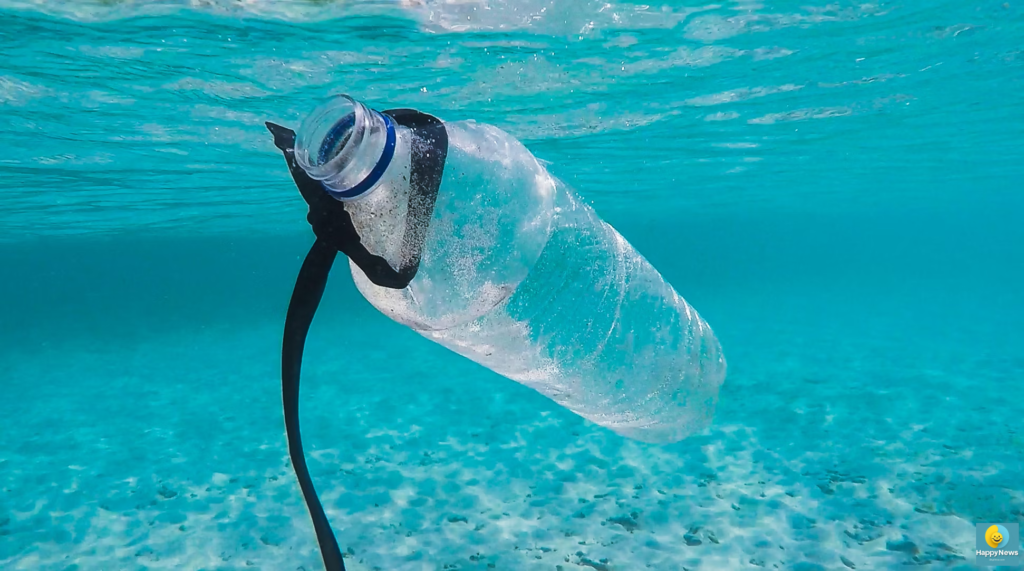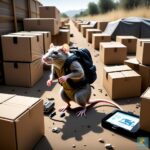There is a revolutionary biodegradable plastic that breaks down in seawater, reducing microplastic pollution and protecting marine ecosystems.


Plastic waste has been making waves—literally—for all the wrong reasons. Microplastics are turning up in our oceans, soils, and even dinner plates. But what if we could stop this? A groundbreaking discovery by Takuzo Aida and his team at RIKEN Center for Emergent Matter Science (CEMS) might just be the game-changer we’ve all been waiting for. This new biodegradable plastic combines the durability of conventional plastics with the ability to dissolve safely in seawater, offering hope for a cleaner, greener planet.
Jump to Section:
A Revolutionary Leap in Biodegradable Plastics
Traditional plastics are famously tough—perfect for packaging and long-lasting products, but terrible for the environment. While we’ve made some strides with biodegradable plastics, many fall short when faced with ocean conditions. Enter the new material from RIKEN CEMS, a biodegradable plastic that doesn’t just dissolve—it does so safely in seawater without leaving harmful residues.
What sets this material apart is its water-soluble structure. Unlike conventional alternatives like PLA (polylactic acid), which struggle to degrade in aquatic environments, this innovative plastic breaks down naturally. This means no more lingering microplastics harming aquatic life or creeping into the food chain.

Why This Innovation Matters
Microplastics are a colossal environmental issue. Tiny fragments less than 5 mm in size, they form when larger plastics break down—or when products like synthetic clothing release them during washing. These particles end up in oceans, harming marine ecosystems and eventually finding their way back to us.
Here’s why the new biodegradable plastic is a big deal:
1. Eco-Friendly Durability: It’s as strong and versatile as traditional plastics, ensuring practical use without compromising sustainability.
2. Marine-Friendly Degradation: When exposed to seawater, this plastic dissolves, leaving behind no harmful byproducts.
3. Combatting Microplastic Pollution: By breaking down completely, it prevents the formation of microplastics, tackling the problem at its source.
The potential applications are endless—from food packaging to disposable utensils and even fishing gear. Imagine everyday items made from a material that doesn’t haunt the planet for centuries!
How Does It Work?
The magic lies in the molecular structure. The RIKEN team engineered the material to maintain strength during use but break apart when immersed in seawater. This process, known as hydrolysis, allows water molecules to interact with the plastic’s chemical bonds, dissolving it naturally over time.
While we’re not diving too deep into the chemistry, this innovation’s brilliance lies in its simplicity. It bridges the gap between durability and biodegradability, something previous materials struggled to achieve.
The Road ahead for Biodegradable Plastic
This invention is a huge leap forward, but challenges remain. Scaling up production, ensuring cost-effectiveness, and encouraging global adoption will take time. Governments, corporations, and consumers all play a role in making this a reality.
Want to make a difference today? Start by choosing biodegradable products when available, reducing single-use plastics, and supporting policies that promote sustainable innovation.

Conclusion: A Cleaner Ocean Starts Here
This new biodegradable plastic could redefine how we think about waste. Combining strength with the ability to break down in seawater tackles one of the planet’s most pressing problems. With innovations like this, the dream of microplastic-free oceans is becoming a tangible reality.
Ready to bid goodbye to microplastics? Let’s embrace this eco-friendly revolution.
Reference studies and Sources:
• Understanding biodegradable materials
• Learn about microplastic pollution
You may like this: 5 Groundbreaking advances in learning animal language. AI learning animal languages.
Similar Posts:
- Whole Grain Wonders: Healthy Foods for You and the Planet
 Switching to a whole grain diet not only revitalizes your health but also contributes to a healthier planet by using fewer … Read more
Switching to a whole grain diet not only revitalizes your health but also contributes to a healthier planet by using fewer … Read more - Rats with Backpacks: The New Heroes Against Smuggling
 Background Imagine a world where small, agile allies are employed to curb the illegal wildlife trade. In an unconventional twist, specially … Read more
Background Imagine a world where small, agile allies are employed to curb the illegal wildlife trade. In an unconventional twist, specially … Read more - Reasearch based top 6 tips on raising “Good Kids”
 Introduction Every parent’s dream is to raise children who are kind, responsible, and emotionally resilient. Harvard psychologists have examined what it … Read more
Introduction Every parent’s dream is to raise children who are kind, responsible, and emotionally resilient. Harvard psychologists have examined what it … Read more - Empowering Children with Dyslexia in Chennai: MDA
 Introduction In 1992, a compassionate group of parents, educators, and philanthropists came together to create the Madras Dyslexia Association (MDA). Their … Read more
Introduction In 1992, a compassionate group of parents, educators, and philanthropists came together to create the Madras Dyslexia Association (MDA). Their … Read more




